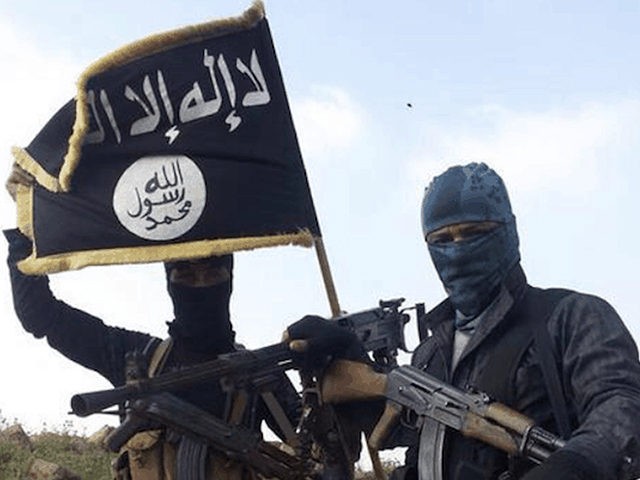The forced withdrawal of Kurdish forces from the anti-Islamic State (ISIS/ISIL) fight in Iraq and Syria is prompting a resurgence of the jihadist groups in both countries, according to U.S. and Kurdish officials.
Echoing the semi-autonomous Kurdistan Regional Government (KRG) in northern Iraq, a Kurdish member of the Iraqi Parliament recently warned that ISIS has been regrouping in Kirkuk province since the Iraqi military and Iran-backed Shiite militias coerced the Kurdish Peshmerga troops into withdrawing.
Iraq and Iran seized Kurdish-held Kirkuk after the Kurds in Iraqi Kurdistan voted in favor of independence last year, a move Baghdad and Tehran oppose.
“Kirkuk is not safe, and there is a great danger in that city,” Kurdish MP Shakhawan Abdullah told Kurdistan 24 on Monday. “The areas between Kirkuk and Hawija, previously kept safe by Peshmerga forces, are now open for IS [Islamic State] to reemerge.”
Meanwhile, the Trump administration cautioned that ISIS is making a comeback in some areas of Syria because the Turkish military offensive against Afrin has pulled the U.S.-allied Kurdish People’s Protection Units (YPG) away from the fight against the jihadist group.
Referring to the Turkish operation against the YPG, U.S. Army Col. Rob Manning, a Pentagon spokesman, declared, “We are very concerned about the effect fighting there has had on our defeat [of] ISIS efforts and would like to see an end to the hostilities before ISIS has the opportunity to regroup in eastern Syria.”
“The fighting in western Syria over the last two months, including in Afrin, has distracted from the defeat ISIS campaign and provided an opportunity for ISIS to begin reconstituting in some areas,” Heather Nauert, a U.S. Department of State (DOS) spokeswoman, added in a statement.
However, the DOS spokeswoman stressed, “We remain committed to our NATO ally Turkey, to include their legitimate security concerns.”
Turkey has conquered Afrin, claiming that the Kurdish YPG forces who fought to defend the city are an extension of the terrorist Kurdistan Workers’ Party (PKK).
Despite Turkey’s concerns about the YPG, the United States has continued to support the Kurdish fighters, except in Afrin.
Turkey has indicated it plans to seize other Kurdish-held regions in Syria, including Manbij where the U.S. maintains a presence, raising the likelihood of a confrontation between the two NATO allies.
Soon after the Iraqi government declared victory over ISIS in December 2017, the terrorist group launched attacks that killed and injured 40 people in Kirkuk.
“In recent weeks, IS has claimed a string of attacks where they have set up fake checkpoints to target unsuspecting victims. The tactics used by the extremist group are reminiscent of methods adopted when they first emerged in Iraq and Syria,” Kurdistan 24 reported on Monday.
Kurdish Iraqi MP Shiwan Dawudi argued in January that Baghdad cannot prevent an ISIS reemergence without the help of the Peshmerga fighters who played a significant role in dealing a substantial blow to the jihadist group, reported Kurdistan 24 that month.
Citing the latest Worldwide Threat Assessment produced by the Office of the Director of National Intelligence (ODNI), the Long War Journal reported in February:
The bottom line: ISIS is far from finished. While most of the territory once under its rule in Iraq and Syria has been “liberated,” the group still retains the resources to wage guerrilla warfare indefinitely.
A map produced by the ODNI underscores the global nature of the threat. Outside of Iraq and Syria, ISIS fighters continue to wage insurgencies in several countries. And some of these branches of the so-called caliphate still threaten the United States and its allies.
The intelligence community’s threat assessment predicted that ISIS would try to regroup in Iraq and Syria this year, warning:
Over the next year, we expect that ISIS is likely to focus on regrouping in Iraq and Syria, enhancing its global presence, championing its cause, planning international attacks, and encouraging its members and sympathizers to attack in their home countries…[ISIS] has started—and probably will maintain—a robust insurgency in Iraq and Syria as part of a long-term strategy to ultimately enable the reemergence of its so-called caliphate.
Nevertheless, Gen. Joseph Votel, the top U.S. commander in the Middle East, told lawmakers this month that ISIS has already lost more than 98 percent of the territory it once held in the region.

COMMENTS
Please let us know if you're having issues with commenting.